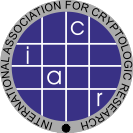Call for Papers
Download the call for papers in pdf format.
The annual CHES conference highlights new results in the design and analysis of cryptographic hardware and soft- ware implementations. The workshop builds a valuable bridge between the research and cryptographic engineering communities and attracts participants from industry, academia, and government organizations. In addition to a single track of high-quality presentations, CHES 2017 will offer invited talks, tutorials, a poster session, and a rump session. Program committee members are allowed to submit one paper, and a second one if both submissions are co-authored. All submitted papers will be reviewed by at least four Program Committee members. Any Program Committee member submission will be reviewed by at least five Program Committee members. Program chairs are not allowed to submit. Authors will be invited to submit brief rebuttals of the reviews before the final decisions are made. Topics suitable for CHES 2017 include, but are not limited to:
Cryptographic implementations
- Hardware architectures
- Cryptographic processors and co-processors
- True and pseudorandom number generators
- Physical unclonable functions (PUFs)
- Efficient software implementations
Attacks against implementations and countermeasures
- Side-channel attacks and countermeasures
- Fault attacks and countermeasures
- Hardware tampering and tamper-resistance
- White-box cryptography and code obfuscation
- Hardware and software reverse engineering
Tools and methodologies
- Computer aided cryptographic engineering
- Verification methods and tools for secure design
- Metrics for the security of embedded systems
- Secure programming techniques
- FPGA design security
- Formal methods for secure hardware
Interactions between cryptographic theory and implementation issues
- New and emerging cryptographic algorithms and protocols targeting embedded devices
- Special-purpose hardware for cryptanalysis
- Leakage resilient cryptography
Applications
- Cryptography and security for the Internet of Things (RFID, sensor networks, smart devices, smart meters, etc.)
- Hardware IP protection and anti-counterfeiting
- Reconfigurable hardware for cryptography
- Smart card processors, systems and applications
- Security for cyberphysical systems (home automation, medical implants, industrial control, etc.)
- Automotive security
- Secure storage devices (memories, disks, etc.)
- Technologies and hardware for content protection
- Trusted computing platforms
Instructions for CHES Authors
Submissions must be anonymous with no author names, affiliations, acknowledgements, or obvious references (this includes metadata hidden in the files). Papers should begin with a title, a short abstract, and a list of keywords. All submissions must follow Springer's LNCS format (http://www.springer.com/computer/lncs/lncs+authors) without changing default margins, fonts, etc. The total page limit is 18 pages excluding references. Supplementary materials that facilitate verification of the results, e.g., source code, proof details, etc., may be appended without a page limit or uploaded as separate files, but reviewers are neither required to read them nor will they be printed in the proceedings. Hence submissions must be complete, intelligible and self-contained within the 18 pages bound. Papers should have page numbers to facilitate their review. In LaTeX, this can be achieved for instance using \pagestyle{plain}.
All submissions will be blind-refereed and submissions which substantially duplicate work published elsewhere, or submitted in parallel to any other conference or workshop with proceedings, will be instantly rejected : see the IACR Policy on Irregular Submissions (https://www.iacr.org/docs/irregular.pdf and the Guidelines for Authors (https://www.iacr.org/docs/author.pdf. Note that any submission to CHES 2017 implies the full acknowledgement and commitment of authors to the entire review process. A withdrawal of any paper prior to the notification deadline will be accepted only in exceptional cases (i.e., severe technical flaws discovered after the submission deadline).
Details of the electronic submission procedure will be posted on the conference website. The final proceedings of CHES 2017 will be published by Springer in the LNCS series and accepted papers must conform to Springer publishing requirements. At least one author of an accepted paper must attend CHES 2017 to present the paper. Furthermore, with their submission, the authors agree that the presentation will be video taped by IACR. For more information please regard https://www.iacr.org/docs.
Conflicts of Interest
The program co-chairs invite authors to help preventing submissions from being evaluated by reviewers who have a conflict of interest. CHES follows the rules and guidelines of IACR with respect to identifying conflicts of interest. During submission to CHES 2017 authors must declare any conflict of interest with Program Committee members that might influence an impartial judgment of their submission. A conflict of interest exists for example if an author and a Program Committee member:
- have a currently ongoing research collaboration
- have been affiliated to the same institution in the last 3 years
- have been in a student-advisor relationship in the last 5 years
- have jointly published more than one paper in the last 3 years
- have personal ties (family, friends, etc.).
For co-authored submissions a conflict of interest exists if at least one co-author has a conflict of interest.
Important Dates and Deadlines
| Submission deadline: | March 17, 2017, 23:59 PST (March 18, 7:59 UTC) |
| Reports sent to authors: | May 12, 2017 |
| Rebuttals due date: | May 19, 2017 |
| Notification of acceptance or rejection: | June 6, 2017 |
| Final version of accepted papers due: | June 26, 2017 |
| CHES 2017: | September 25–28, 2017 |
Poster and Tutorial Sessions
CHES 2017 will include a poster session and the Call for Posters is available via the conference web-page. The program co-chairs also welcome proposals for half-day tutorials at CHES 2017. The presenter of an accepted proposal will be offered a complimentary registration to CHES 2017 and a fixed stipend towards their travel costs.
